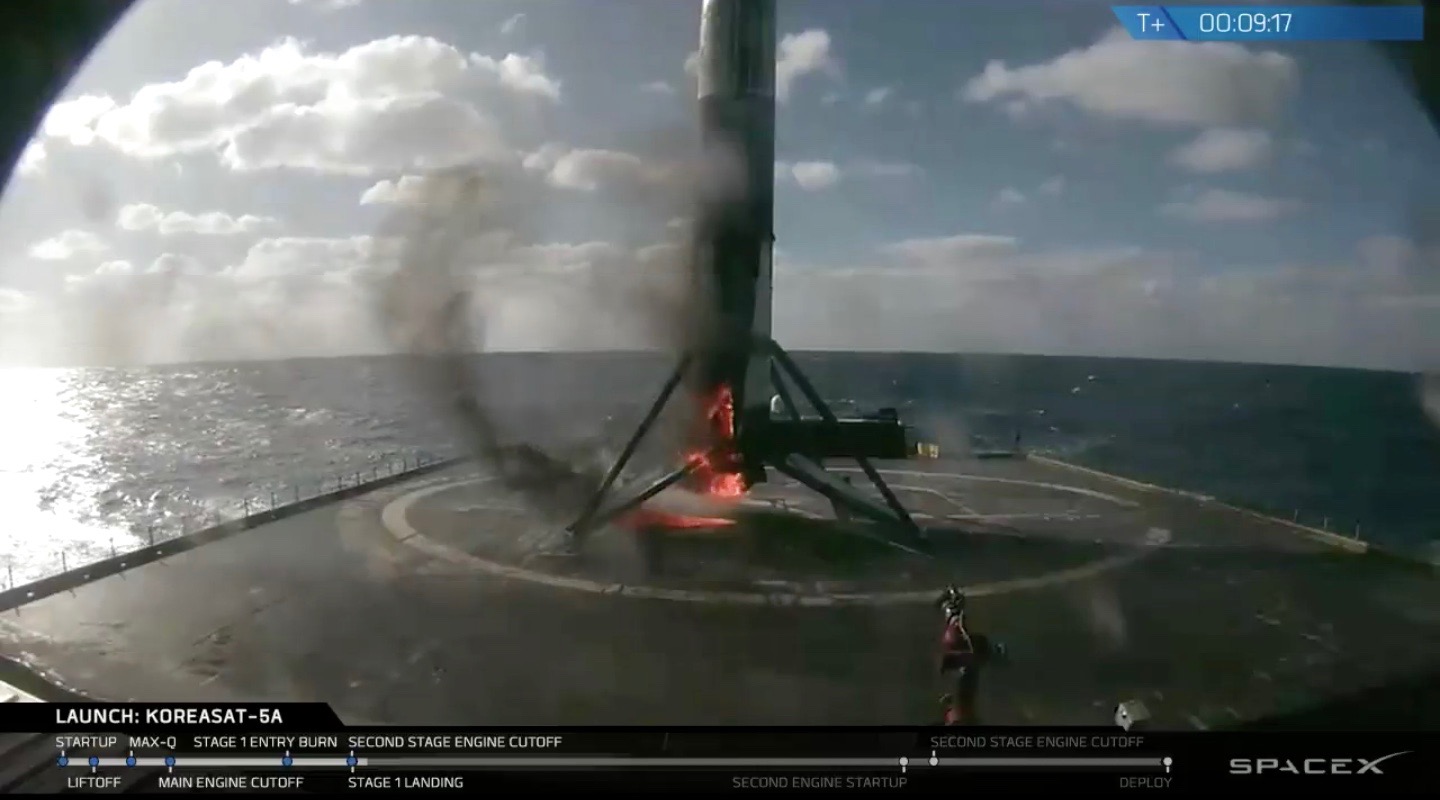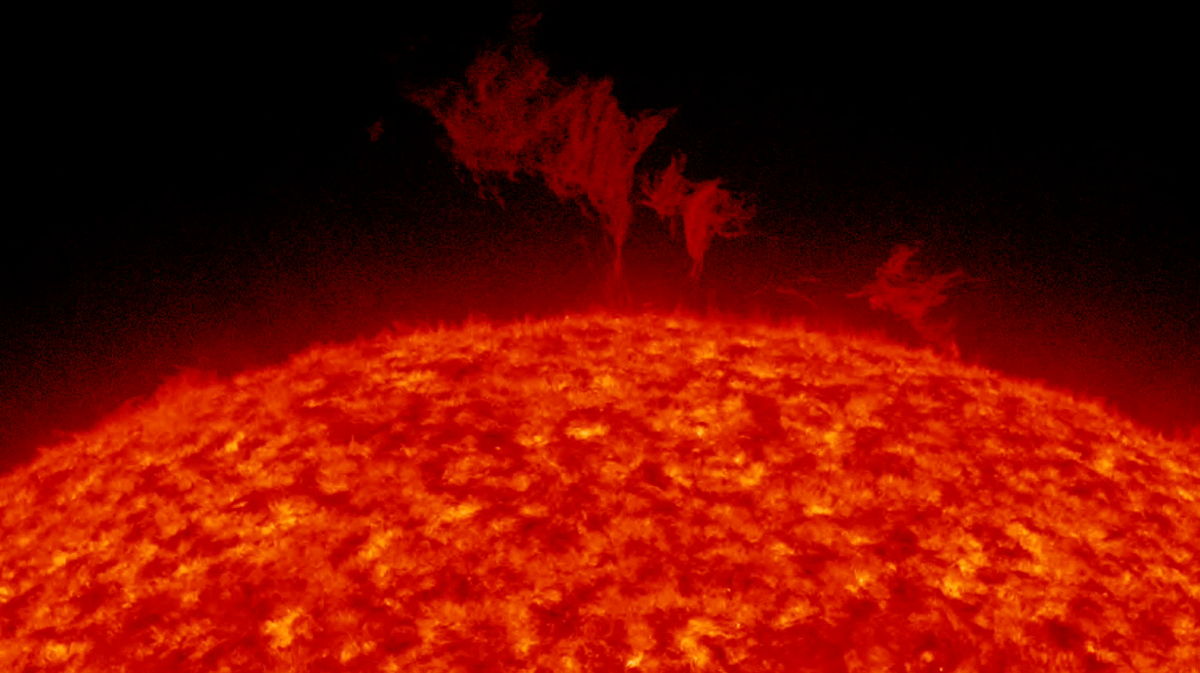SpaceX Aces Another Rocket Landing After Launching Korean Satellite
Another day, another rocket launch and landing for SpaceX.
A two-stage Falcon 9 rocket topped with the Koreasat-5A communications satellite lifted off from NASA's Kennedy Space Center (KSC) in Florida today (Oct. 30) at 3:34 p.m. EDT (1934 GMT).
About 8.5 minutes after launch, the rocket's first stage came down for a pinpoint landing on the SpaceX drone ship "Of Course I Still Love You," which was stationed in the Atlantic Ocean a few hundred miles off the Florida coast. A fire smoldered at the booster's base shortly after the landing, but SpaceX quickly put it out. [In Photos: SpaceX's Koreasat-5A Launch & Rocket Landing]
"A little toasty, but stage one is certainly still intact on the drone ship," SpaceX lead mechanical engineer John Federspiel said during launch commentary today.
The Falcon 9 second stage, meanwhile, continued powering Koreasat-5A to a distant geostationary transfer orbit, eventually deploying the satellite 35.5 minutes after liftoff.

The rocket landing was the 19th that SpaceX has pulled off during orbital launches. These dramatic events are part of the company's plan to develop completely reusable rockets and space vehicles, a breakthrough that SpaceX founder and CEO Elon Musk has said will slash the cost of spaceflight.
To date, SpaceX has re-flown three of these landed Falcon 9 first stages, as well as one Dragon cargo capsule. In addition, the company's next resupply mission to the International Space Station for NASA will feature a pre-flown Dragon. (The Falcon 9 that launched today was a brand-new vehicle.)
Get the Space.com Newsletter
Breaking space news, the latest updates on rocket launches, skywatching events and more!
South Korean company KT Sat will use the 8,160-lb. (3,700 kilograms) Koreasat-5A to provide direct-to-home broadcast and broadband services to customers in Japan, South Korea and the Philippines, among other nations. The newly launched satellite will take over for Koreasat-5, which launched in 2006.
"As a replacement for Koreasat-5, Koreasat-5A will expand KT Sat's coverage across Asia and the Middle East," SpaceX representatives wrote in a mission overview. "Unlike other satellites in the Koreasat fleet, Koreasat-5A will provide maritime coverage of the Persian Gulf, Indian Ocean, South China Sea and East China Sea."
Today's launch was the 16th of the year for SpaceX, one more than the company pulled off in 2015 and 2016 combined.
The Falcon 9 lifted off today from KSC's Launch Complex 39A, which previously hosted Apollo moon mission and space shuttle liftoffs. In 2014, SpaceX signed a 20-year lease to use the pad.
Follow Mike Wall on Twitter @michaeldwall and Google+. Follow us @Spacedotcom, Facebook or Google+. Originally published on Space.com.
Join our Space Forums to keep talking space on the latest missions, night sky and more! And if you have a news tip, correction or comment, let us know at: community@space.com.

Michael Wall is a Senior Space Writer with Space.com and joined the team in 2010. He primarily covers exoplanets, spaceflight and military space, but has been known to dabble in the space art beat. His book about the search for alien life, "Out There," was published on Nov. 13, 2018. Before becoming a science writer, Michael worked as a herpetologist and wildlife biologist. He has a Ph.D. in evolutionary biology from the University of Sydney, Australia, a bachelor's degree from the University of Arizona, and a graduate certificate in science writing from the University of California, Santa Cruz. To find out what his latest project is, you can follow Michael on Twitter.









